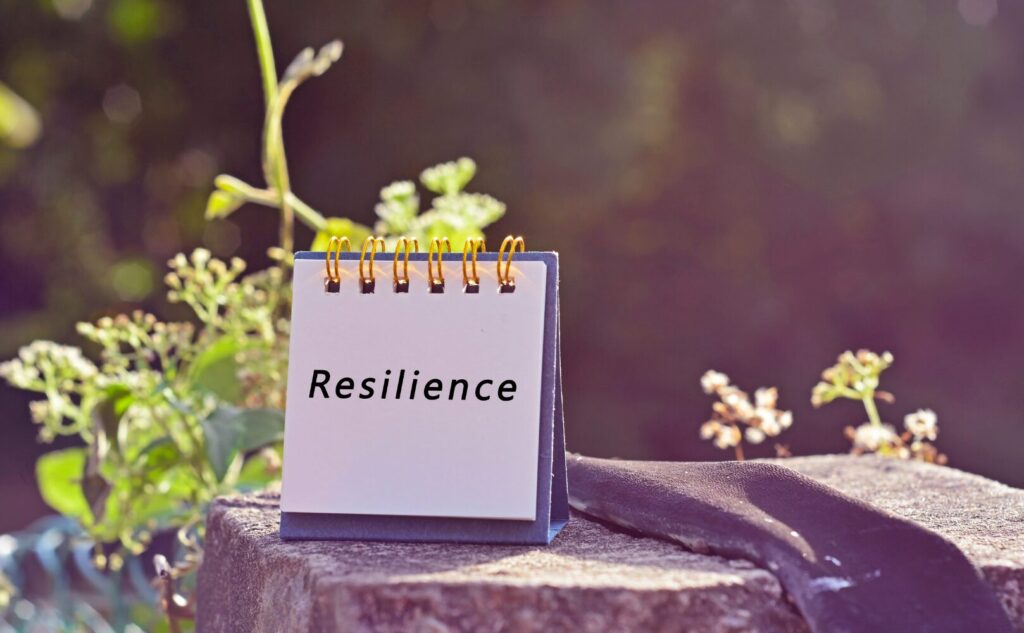“I guess divorce is our only option…”
Those words echoed between us for months. After one particularly brutal fight, I didn’t just threaten to leave—I actually signed a lease on a new apartment and was ready to walk away from our marriage for good.
Today, those dark days feel like someone else’s story. We’re not just surviving—we’re thriving. The tension that once filled our home has been replaced by genuine peace and connection.
- Getting frustrated because you can’t understand your partner’s priorities
- Watching small disagreements explode into relationship-threatening fights
- Desperately trying to “fix” your partner
Here’s what changed everything for us: I stopped trying to change him and started working on myself instead.
I used to roll my eyes at advice like this. “How could something so simple actually work?” But after implementing five specific changes over six months, our entire dynamic shifted. If you’re struggling in your relationship right now, maybe our story can offer you hope.
The Crisis Point Most Couples Face

In Japan, “incompatible personalities” accounts for 60% of divorces initiated by husbands and 40% by wives, according to recent judicial statistics. We were heading straight toward becoming another statistic.
The irony? I’d spent years as a flight attendant, visiting over 40 countries and celebrating cultural differences. “Diversity is beautiful,” I’d tell people. Yet somehow, I couldn’t accept the fundamental differences between my husband and me.
When Differences Become Dealbreakers

Here’s how our “incompatibility” played out daily:
I lived by the clock. Punctuality wasn’t just important to me—it was sacred. I planned everything, kept detailed schedules, and being late felt like a personal failure.
My husband? He operated on what I called “island time.” His motto was “everything will work out,” and he genuinely seemed incapable of understanding why I got so stressed about being “a few minutes” late.
Initially, we found these differences charming. “You’re so organized!” he’d say. “You’re so relaxed!” I’d reply. But that charm quickly fades when you’re sitting alone, waiting for him to show up—already twenty minutes late for the dinner reservations you booked weeks ago.
Every trip became a source of anxiety. I’d find myself thinking:
- “Why can’t he just leave when I ask?”
- “Why am I always the one getting upset?”
- “How is he this calm when we’re ruining our vacation?”
What started as quirky differences became daily friction.
The Breaking Point

Our final straw came during an international move back to Japan.
With just days before our moving day, my husband hadn’t packed a single box. While I frantically tried to organize our entire life into cardboard containers, he continued his usual routine as if we had all the time in the world.
The night before the movers came, I found myself sobbing while taping boxes at 2 AM. He eventually had to fly back separately just to finish what should have been done weeks earlier.
That’s when years of suppressed frustration finally erupted.
The Night I Almost Left

Our fight started over something ridiculously small—I can’t even remember what—but it unleashed every grievance I’d been storing up. When he told me to “just leave then,” something broke inside me.
The next morning, I marched into a real estate office and signed a lease agreement. I wasn’t bluffing anymore.
That evening, when I showed him the signed papers, his face went white. The man who’d told me to leave suddenly realized I was serious. For the first time in years, we talked—really talked—until we came to the conclusion.
The Decision That Changed Everything

After that marathon conversation, we made a pact: we’d try one more time.
But I was terrified we’d just repeat the same destructive patterns. That’s when it hit me:
I couldn’t change him. The only person I had any control over was myself.
Here I was, someone who celebrated diversity everywhere except in my own home. I’d been trying to force my husband into my mold instead of accepting who he actually was.
So I made a radical decision: stop trying to change him and start changing my own responses instead.
The 5 Changes That Transformed Our Marriage

Over the next six months, I implemented five specific strategies that completely shifted our dynamic:
1. Let Go of the “Shoulds”

My internal dialogue was a constant stream of judgments: “He should be ready by now.” “We should have left already.” “He should care about being on time.”
All that “shoulding” was making me miserable.
What I did instead: I started building buffer time into everything. If we needed to leave at 7, I’d tell him 6:30. Instead of standing by the door fuming, I’d use the extra time to read, journal, or just breathe.
The result: Waiting stopped feeling like torture and started feeling like bonus time for myself.
2. Shine a Light on the Good and Express Gratitude

I’d gotten so good at cataloging his flaws that I’d become blind to his strengths. My mental list of complaints was encyclopedic.
What I did instead: I started actively hunting for things to appreciate—and then I said them out loud. “Thank you for cleaning the bathroom.” “You always make me laugh when I’m stressed.”
The result: Gratitude created a positive feedback loop. The more I acknowledged his efforts, the more effort he made.
3. Build Your Inner Anchor

Even though I kept telling myself, “Don’t get irritated,” I would still get swept away by my emotions.
There was a time when I felt completely drained from always battling with myself.
But then I realized—it’s not about never getting angry.
What matters is having an inner anchor, a steady center, that helps you come back to yourself when emotions start to sway.
What I did instead: I created what I call my “center”—a way to return to calm even when my emotions were running hot. When I felt frustration building, I’d step away and do something grounding: deep breathing, looking out the window, or reading a few pages of a book.
The result: I got much better at bouncing back quickly instead of staying angry for hours.
4. Practice “Eating from the Same Pot of Rice”

I’d gotten so rigid about my diet—vegan, then macrobiotic, then whatever the latest health trend was—that we rarely ate the same food anymore. We’d sit at the same table eating completely different meals.
What I did instead: I relaxed my food rules and occasionally ate what he was eating. Not every meal, but enough to reconnect over shared experiences.
The result: Meals became fun again. We’d try new restaurants and actually talk during dinner instead of just going through the motions.
That’s when I finally understood the meaning behind the Japanese saying “eating from the same pot of rice”—sharing food as a way of growing closer and creating real connection.
5. Bring a Smile to the One by Your Side

Somewhere along the way, my husband had become the person I had the least energy for. I’d come home exhausted from work and have nothing left to give the most important person in my life.
What I did instead: I started intentionally creating time for us—sharing dinner together, or simply talking for a few minutes even on hectic days.
The result: Little by little, we found ourselves laughing more, and our home began to feel warm and comforting again.
The Transformation

Six months later, our marriage is unrecognizable—in the best possible way.
I’m writing this while standing in line to buy his favorite donuts, and you know what? The “waiting” that used to drive me crazy has become peaceful moments to think and reflect. It’s amazing how changing your perspective can transform even the most frustrating situations.
Here’s what I know for certain now: It’s through our differing values that learning happens—we can respect, accept, and love the qualities we don’t have ourselves.
My husband is still the same laid-back guy who runs on island time. But my response to him is completely different, and that shift has transformed our entire dynamic.
How you look at things can transform what seems negative into something good.
Your Next Step
If you’re struggling in your relationship right now, start here:
Find one thing you genuinely appreciate about your partner today and tell him.
That’s it. Don’t try to fix everything at once. Small changes compound over time.
Yes, personality differences can end marriages. But the real killer isn’t that couples are different—it’s that they stop trying to understand and appreciate those differences.
When you learn to accept and even celebrate what makes your partner unique, something beautiful happens. You build a relationship that’s richer, more interesting, and more resilient than anything you could create with someone exactly like you.
I’m grateful every day that we didn’t give up. If we could turn things around, I believe you can too.
Your marriage might be one small change away from a complete transformation.



Comments